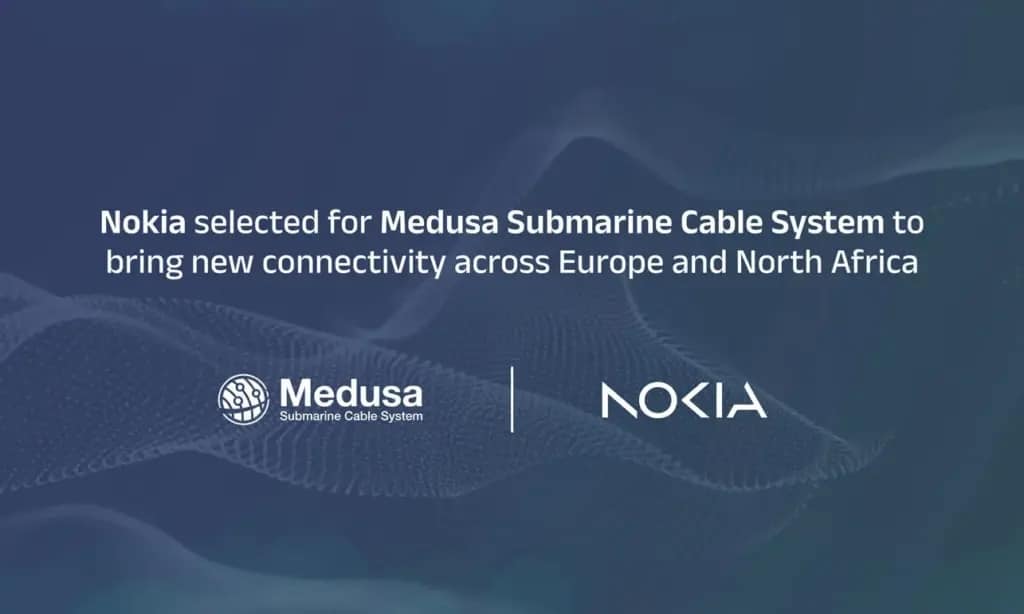The undersea fiber optic network, led by AFR-IX Telecom and now supported by Nokia’s technology, promises to revolutionize digital connectivity in the Mediterranean and North Africa.
The multinational technology company Nokia, which earlier this year acquired Infinera, has been chosen to provide optical infrastructure for the ambitious Medusa submarine cable system project, promoted by AFR-IX Telecom. This initiative aims to establish a new high-capacity digital corridor connecting Europe and North Africa via the Atlantic, the Mediterranean, and the Red Sea, driving digital and economic growth in the region.
Medusa: the digital bridge between continents
The Medusa system is more than just another submarine cable. It is an open and neutral infrastructure designed to deliver advanced connectivity services to telecom operators in countries such as Morocco, Tunisia, Libya, Algeria, and Egypt, thereby helping to reduce the digital gap between Europe and Africa.
The network will facilitate the deployment of 5G networks, the expansion of cloud infrastructure, and support the increasing data traffic driven by artificial intelligence, edge computing, and future digital platforms.
Cutting-edge optical technology
Nokia will contribute its 1830 GX Series platform, equipped with ICE7 coherent optics capable of transmitting tens of terabits per second per fiber pair. This technology will enable Medusa to offer ultra-high capacity, low-latency connectivity, optimizing both cost and energy consumption per transmitted bit.
“Medusa is laying the groundwork for a more connected and inclusive digital future. With Nokia’s submarine optical solution, we can provide faster, more reliable, and scalable connectivity at a lower cost,” explained Miguel Ángel Acero, CTO and founder of Medusa.
“This transformative project brings faster connectivity to millions of people, opening the door to innovation and integration in the global digital economy,” added John Harrington, senior vice president of Nokia.
Technological and strategic implications
The partnership between Nokia and AFR-IX Telecom represents a strategic leap in the next-generation network ecosystem, not only because of the cable’s capacity but also due to its modular and scalable design, which responds to the growing traffic needs driven by AI, big data, and digital service platforms.
Additionally, this system will add redundancy and resilience to current connectivity routes between Europe, Africa, and Asia, especially in a geopolitical context where secure, low-latency links are more critical than ever.
Medusa in numbers
- Estimated length: over 8,700 kilometers of submarine cable.
- Direct connectivity between Portugal, Spain, France, Italy, and Greece with five North African countries.
- Transmission technology: ICE7 coherent optics.
- Initial capacity: over 20 Tbps per fiber pair.
- Expected operational startup: between late 2025 and 2026.
The Medusa project reinforces the Mediterranean’s role as a strategic hub for international connectivity and cements Nokia’s position as a key player in future digital infrastructure, offering large-scale optical solutions that pave the way toward a hyperconnected, AI-driven society.
via: medusascs

